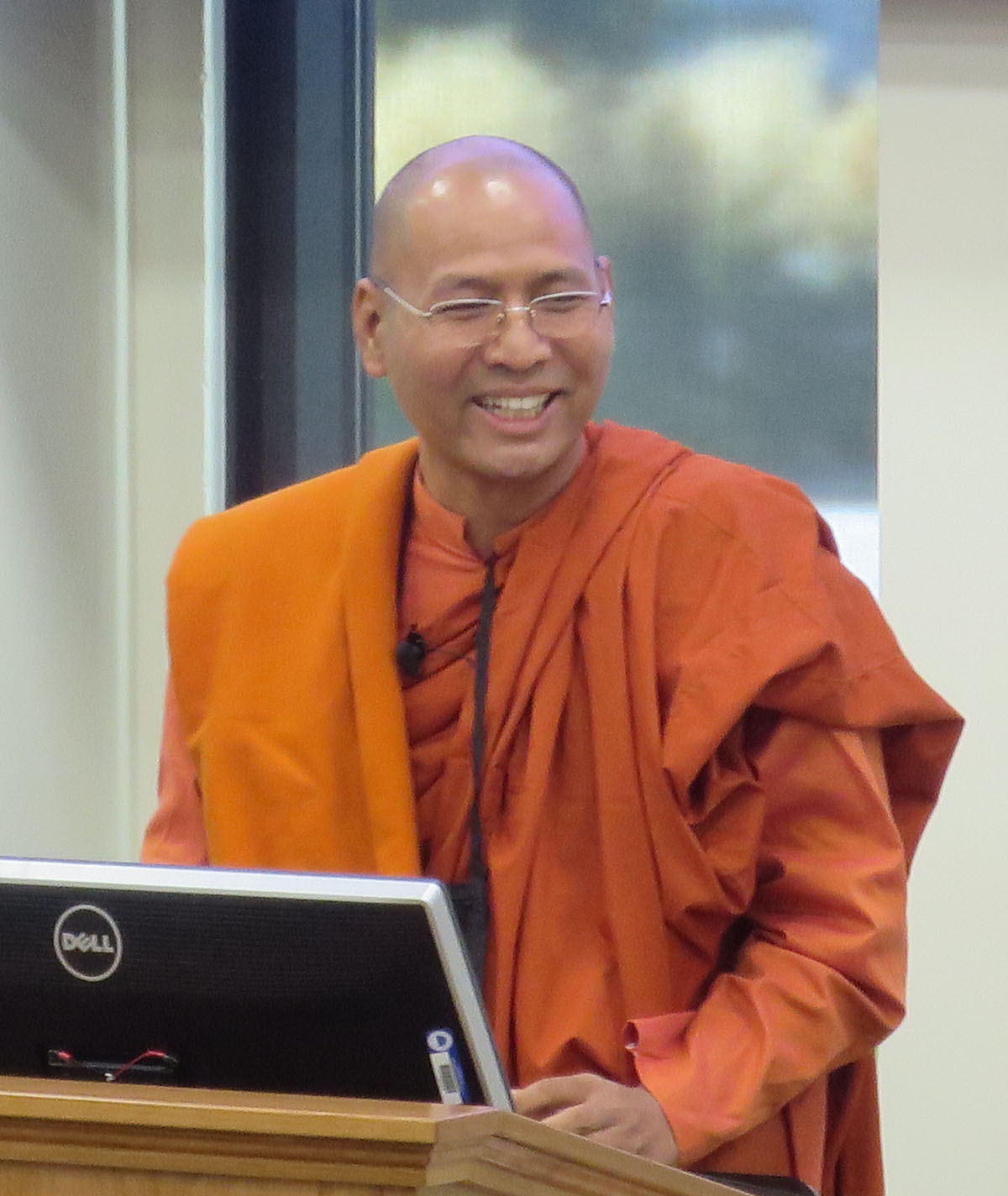





Thondara
by Ryan Hughes
In a session moderated by Brett Scharffs, Professor of Law and Director for the International Center for Law and Religion Studies at the J. Reuben Clark Law School, Mahn Palmerston, Ashin Thondara, and Ashin Visuta, who are all from Myanmar, discussed how interfaith cooperation is taking place in the state and how religious liberties are being upheld.
Reverend Mahn Palmerston, General Secretary of the Myanmar Council of Churches, described the religious plurality and religious freedom movements currently taking place in Myanmar. He listed four different points. First, he suggested that technology has not reduced interreligious conflict. If anything, it has allowed it to increase because “although we are living in the IT age, brutal events in the world prove that people are treating each other as the Stone Age.” Second, he discussed how the rule of law is meant to protect the nation and the individuals who live within it. Third, he listed how religion can give people purpose, morals, and peace. He reconciled this idea with religious conflicts by stating that it is individuals’ choices and interpretations that lead to problems and not the religions themselves. Finally, he outlined how the government upholds religious freedoms and liberties in Myanmar through the constitution and a new nationwide interfaith association.
Ashin Thondara, a Protector at the Sitagu International Buddhist Academy, discussed the religious plurality and freedoms that exist in Myanmar. He focused his remarks on Buddhism for the majority of his presentation. He gave a brief history of Buddhism and then described how living the principles of Buddhism would lead to greater interfaith dialogue and peace. He also connected Buddhist principles with modern human rights and showed how the two should comingle and help to reduce religious conflicts.
Ashin Visuta, who is the Lecturer in charge of Foreign Affairs at the Sitagu International Buddhist Academy, discussed how the free and fair elections in 2015 have helped to change Myanmar for the better and allow for greater religious freedoms. He outlined the history of the country from being a colony to being under military rule and the problems both presented. These issues led to a revolution headed by the Buddhist monks which catapulted towards Myanmar establishing more of a modern democracy. He stressed that all religions teach their adherents about the need to live in peace and harmony by living in the spirit of fellowship. When fellowship is felt towards members of all faiths, people will be less likely to become involved in conflicts and disputes. He also described how economic interdependency is not enough to create one human family but a spirit of fellowship might be.
